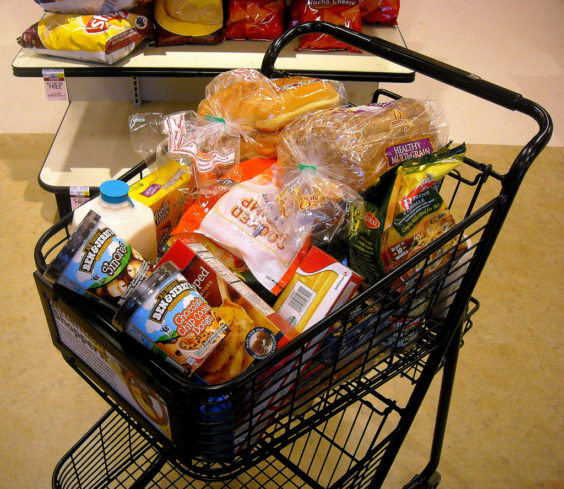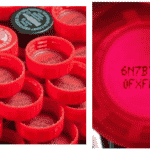Have you seen any strangely specific ads on Facebook yet – almost as though Facebook knows what you’ve been buying at the grocery store?
Well, it does. Just because you went through self-checkout and hid your purchases in a brown paper bag doesn’t mean everyone doesn’t know what you’re buying. So much for privacy.
We’ve all known that store loyalty programs and privacy do not exactly go hand-in-hand. But the notion that your data is being used to sell you more stuff has seemed mostly theoretical – other than some extra junk mail, it may seem that retailers aren’t doing much with the information they’re gathering. But leave it to Facebook to change all that.
The company announced last week that it’s partnered with several companies that compile loyalty card data, in order to target ads to specific audience segments. Are you one of the 13,844,000 Americans identified as “heavy buyers of children’s cereal”? Maybe you’re among the 13,657,400 shoppers partial to peanut butter and jelly? Or perhaps you’re one of 16,438,600 “who spend three times or more than the national average” in the “chocolate candy category”?
Those are just some of the 60 different consumer packaged goods categories advertisers can now choose from, when advertising on Facebook. Say you’re a company coming out with a new line of diet microwaveable meals – you can choose to target those with a history of purchasing both “low-fat foods” and “frozen entrees” to ensure you’re reaching an interested audience.
It’s not unlike online ads that target you based on your browsing history. But how does Facebook know what you’ve been buying in real life? It’s all about connecting the dots. If you signed up for a store loyalty card with an email address or phone number that you also use on Facebook – voila, Facebook knows you’re the same person. So swipe your loyalty card when buying a bag of chips, and you are now in the “salty snacks” category of consumers, just lying in wait for a snack maker to hit you up with a Facebook ad for their product.
It’s the flip side of an arrangement that was first announced in September, in which Facebook aimed to track who bought products after seeing ads for them on Facebook (read: “Everyone Knows What You’re Buying”). Now Facebook can target ads to you, based on what products you buy. Datalogix, one of the companies Facebook has partnered with, has information from about 70 million Americans who are members of any of more than a thousand retailers’ loyalty cards. And it’s not limited to store loyalty cards – the companies also have demographic data, they know if you have “historically spent heavily on gift baskets”, if you frequent casinos, if you’re in the market for a new car, or if you’re considered an “affluent baby boomer”.
If it all seems a little creepy, all parties involved insist that no personally identifiable information is shared. We’re all just nameless pieces of data, collated and categorized in order to be marketed to.
Just something to think about next time you fill your shopping cart with junk food, or suppositories, or antifungal anything. You may slip out of the store without anyone noticing, but you could be reminded of your purchases every single time you log onto Facebook. Just as long as there’s not an advertiser with one product that fits all of those categories. Now that would be creepy.

















Too bad no one wants to offer me coupons for beer. 🙁
You’d think this would be against the terms and privacy policy we signed when signing up for the loyalty card.
If you look at a lot of loyalty program privacy policies, they say they won’t share personally identifiable information (like email addresses) with marketers or manufacturers, but they do share this information with their “partners” like Datalogix. In this case, Datalogix is doing the sorting and grouping and sending the results to Facebook – so Facebook never actually sees your personal information, but is able to use the information that Datalogix provides to target ads to you, without violating the loyalty programs’ privacy policies.
Sneaky, huh!
That is very sneaky! Just because you agree for the store to share your info with their “partner,” they should not consider that as implied consent for the “partner” to share that info with someone else. That is taking it another step beyond what was agreed to.
Speaking of sneaky, I was kicked off of Facebook some months ago because I refused to provide them with my phone number. They said they needed to know my phone number in order to verify that I didn’t have multiple Facebook accounts. I didn’t believe that excuse at the time since a person can have more than one phone number as well. This explains the push for that information.